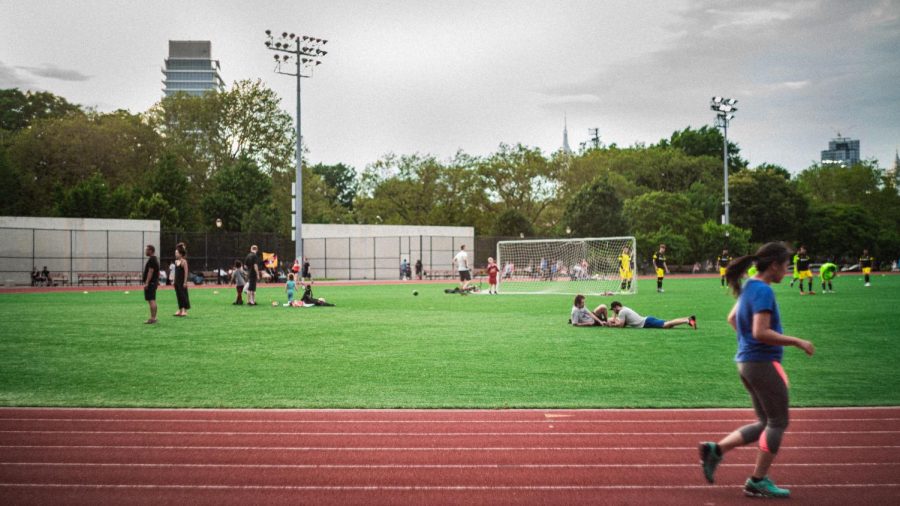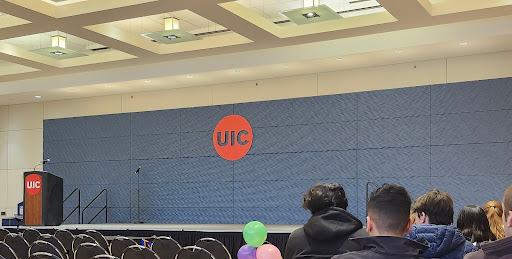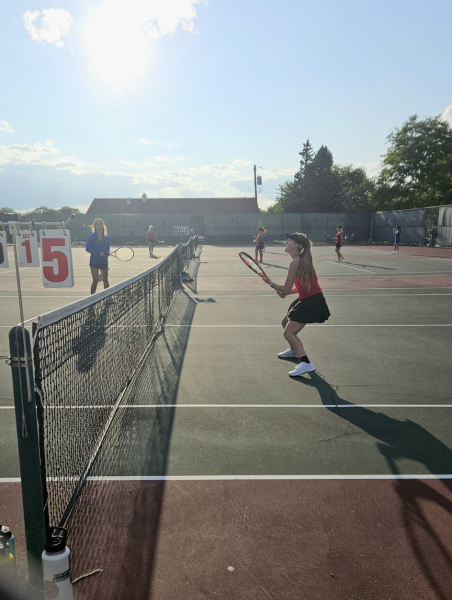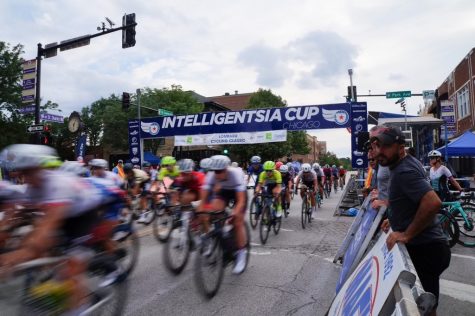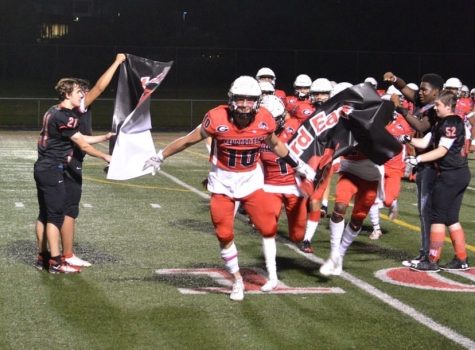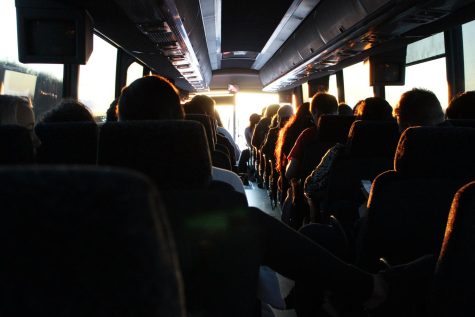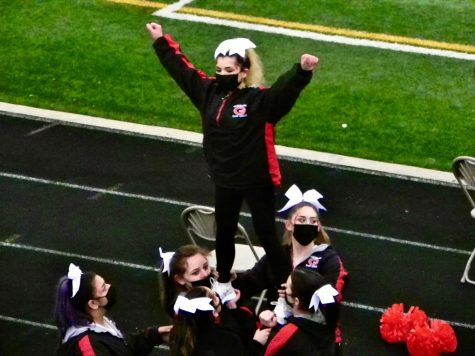Participation in Multiple Sports Brings Both Burden and Benefits
COVID 19 has taken away students’ school year, concerts, restaurants, trips, and an entire sports season. But it also gave some a unique opportunity. In this abnormal year, many high school sports have changed and overlapped their traditional seasons.
Instead of three seasons (Fall, Winter, Spring), a fourth has been added: summer. Summer sports will end after the school year. This caused a dilemma with athletes and coaches who are active in more than one sport that now shared a season. But instead of choosing just one sport, they were presented with an option of splitting their time between both.
The daily schedules of these two-sport athletes and coaches became crammed with practices, meets, and games. Many leave their house at sunrise and don’t come home till sunset.
Gabby Walton is a freshman volleyball and softball player. Her volleyball season got switched from fall to summer this year and recently ended. But her start to softball, which is now a summer sport, and the end of her volleyball overlapped. She spends hours every day staying after school.
“I leave for school around 7:10. On game days for volleyball, I get home around maybe 6:30-7 but on practice days I either get home around 5 or 6:45 depending if the practices are at the same time or not,” said Walton.
Since each sport takes up six days a week, players and coaches have had to split their time between sports. Most choose to divide their time each day between both unless they have games or meets.
Mackenzie Huber is a sophomore volleyball, track, and softball player. With volleyball being a spring sport and track and softball being summer sports there were weeks when she was playing three sports at the same time. To balance her schedule, she has had to divide her time.
“I split my time between the sports, I switch off every day to which sport I go to. If I have a practice for one sport and a game for the other, the game trumps the practice,” said Huber.
Gabby Walton splits her time so evenly that she sacrifices game warm-up times for the other sports practice.
“In order to be fair to both times, I normally split my time between both. Normally I go to half of softball first and then the last half of volleyball. On game days though I’ll go to an hour of softball and then run inside to warm up a little for volleyball,” said Walton.
Daniel Voss is a math teacher at East. He also coaches baseball and football.
“I felt as if I had an equal obligation and commitment to both sports, and unfortunately, I can’t be in two places at the same time. For the most part, I switched back and forth between the two sports each day. I would go to football on Mondays, then baseball on Tuesdays, back to football on Wednesdays, etc. On days in which there was a baseball game, I would go to football practice first and then go to baseball after,” said Voss.
However, with their schedule packed, how do athletes balance both sports and schoolwork? Most spend their free time devoted to academics. Daniel Zlatanov is a freshman football and volleyball player. He is taking a rigorous course load while playing two sports and is involved in music.
“I manage my time between sports by either splitting time (usually) and sacrificing any free time to keep up in school. I’m involved in music in many ways and take private classes for math and piano. I don’t usually balance the classes and sports very well, but I try my best,” said Zlatanov.
Students have to balance their schoolwork, but coaches have work, sports, and a family to take care of. Daniel Voss has been devoted to both sports and family time. He has had to alter his parenting schedule to fit his coaching schedule.
“The reality is that coaching just one sport requires a lot of sacrifices. I have two little kids at home (one is almost 3 and the other is almost 1) and there was one week where 4 out of the 5 days the only time I got to see them was in the morning before coming to work. My wife and I are always working our personal schedules around my coaching schedule,” said Voss.
The intense routines of these athletes have created a burden for not only them but their parents as well. Most rely on buses or rides for their way home.
“My parents have been supportive and encouraging. After a difficult year, they wanted me to have any experiences I could safely do. Maybe a few more rides, but they enjoyed seeing me having fun and playing!” said Huber.
Nevertheless, parents enjoy seeing their children play the sports that they love.
“Going back to in-person school affected my mom because now we have to leave earlier so she’s not late for work but after school, it affects her because she is driving around a lot more because my siblings also have sports and she wants to make sure she gets to see us play,” said Walton.
With so many things going on (especially during a pandemic), it is inevitable for both teenagers and adults to experience stress.
“As a negative, I would be lying if I said it wasn’t stressful. Bouncing back and forth, feeling like a “part-timer” for both, stretching myself thin, spending time away from family, these were all things that weighed heavily on me physically, mentally, and emotionally,” said Voss.
However, sports are beneficial in many ways. The busy schedule may add unnecessary pressure and stress, but it creates a social outlet for many kids who have felt trapped in isolation this past year.
“I believe that sports help your mental health, especially during this time with COVID. You get to interact with people and be outside. This is an overall positive impact on students, but it can be stressful at times doing multiple sports. As long as you are organized and communicate well with your coaches then it is a lot less stressful,” said Huber.
Athletes and coaches are just grateful to have a normality in their life and to get back to something they love after a year of seclusion. For them, sports have been immensely involved in their life every year.
“From a positive standpoint, I have been able to do what I love at the same time. Not having a baseball season last year due to the pandemic was hard on me because it was the first time since I was 6 years old that baseball wasn’t a part of my Spring, whether it be as a player or a coach. Losing football in the Fall just added to that struggle. Getting back to coaching definitely uplifted me,” said Voss.
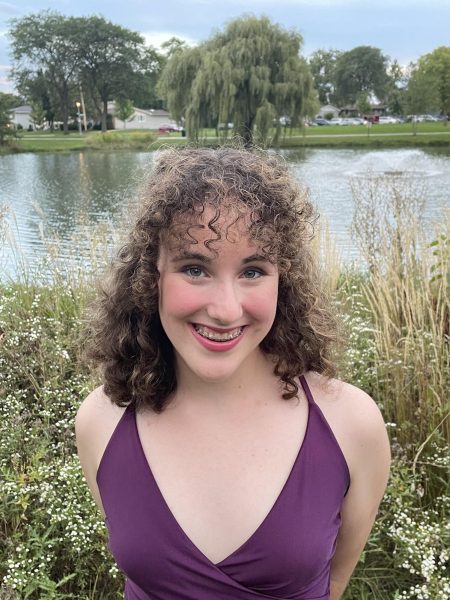
Maggie is a senior, this is her fourth year with the Echo, and is returning as Editor-in-Chief! In addition to the Echo, Maggie plays violin, is orchestra...



